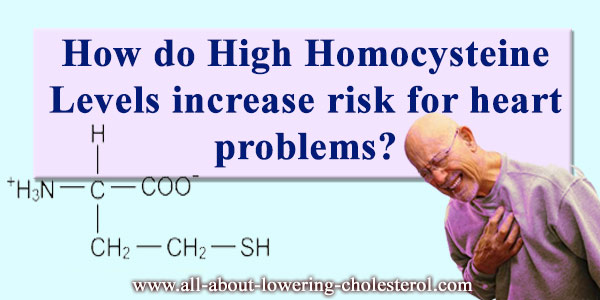
Discovering that you have high homocysteine levels in your blood can be scary and confusing. However, understanding why this condition occurs and what steps you can take now that you have the diagnosis does not have to be complicated.
This article will explain, in plain terms, why high homocysteine levels develop, what it means to your heart health, and most importantly what you can do to lower your level.
What causes high levels of Homocysteine?
Homocysteine is an amino acid that is found in your blood and is a natural byproduct of eating meat. In a healthy body, this amino acid is broken down into two similar amino acids (i.e. methionine and cysteine) and essentially removed from the blood.
This breakdown is aided by a few key vitamins, folic acid, B12 and B6 as well as some beneficial enzymes.
If your body is lacking these key vitamins and enzymes the breakdown of homocysteine is insufficient and this amino acid accumulates in your blood leading to high levels.
How do high Homocysteine levels in the blood increase risk for heart problems?
High levels of this amino acid are concerning because they can lead to serious heart health issues.
According to experts, “Elevated levels of homocysteine (>10 micromoles/liter) in the blood may be associated with atherosclerosis (hardening and narrowing of the arteries) as well as an increased risk of heart attacks, strokes, blood clot formation, and possibly Alzheimer’s disease.”
For these reasons, it is important to take proactive steps to lower the level of homocysteine in your blood.
How to lower your high levels of Homocysteine
Even though there is often a genetic link that results in elevated homocysteine levels, there are changes you can make to your diet that will improve your situation and lower your levels.
To lower the level of homocysteine in your blood make dietary improvements that aid the breakdown of the amino acid. This can be done by increasing your intake of the necessary vitamins needed for the breakdown process.
Focus on eating more cereals fortified with folic acid or taking a folic acid supplement along with vitamin B12 and B6 supplements.
By making these simple changes in your diet and having your blood checked regularly, you may be able to lower the level of homocysteine in your blood.
